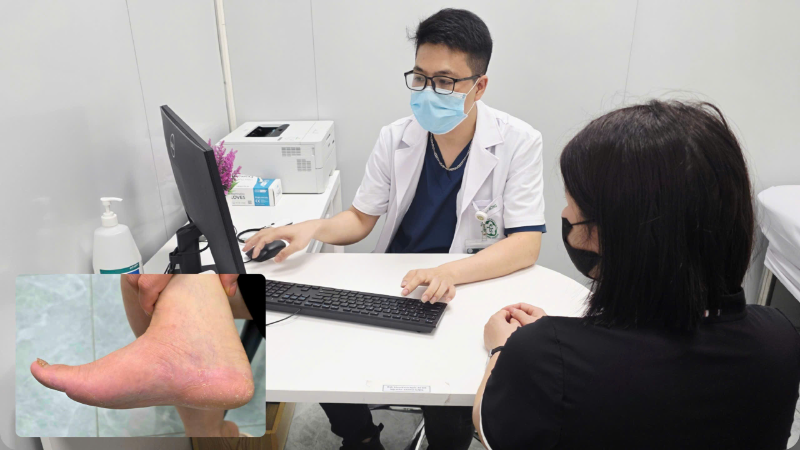
In flooded areas or those who often have to work or move outdoors in rainy and flood conditions, many people suffer from rashes, blisters, itching, dermatitis and even deep ulcers on the feet and hands. There are cases where the disease spreads all over the body due to prolonged contact with dirty water. This is a reality recorded among the cases coming to Bach Mai Hospital in recent days.
Patient TTH ( Hanoi ) came to the clinic with many blisters on her feet. She said that for about a week now, due to having to wade through water frequently while working, her feet started to peel, itch, and blister, especially at night.
At first, the itching was only on the soles of her feet, then spread to the insteps and calves. She tried applying moisturizer and buying medicine from a pharmacy, but it did not help. The itching and burning even got worse, so she had to go to the hospital.
At the Department of Dermatology and Burns, Bach Mai Hospital, after examination and testing, Ms. H. was diagnosed with a fungal skin infection. The doctor prescribed treatment with specific topical and oral medications, and monitored her for 2-4 weeks.
Similar to Ms. H., Mr. NQ ( Ninh Binh ) also came to the clinic with peeling skin, itching and pustules on both hands, especially between the fingers.
With his main job being working at a construction site, during the past few rainy days cleaning up with his colleagues, he often had to soak his hands in dirty water continuously, leading to itchy, peeling and burning skin. The examination results showed that he had contact dermatitis due to bacterial infection.
Master, Doctor Hoang Hong Manh, Department of Dermatology and Burns said that after every heavy rain or flood, the hospital receives many cases of dermatological diseases, from itching, blisters, dermatitis to infected ulcers. The most common lesions are on the hands and feet, and in some cases, they spread to the whole body.
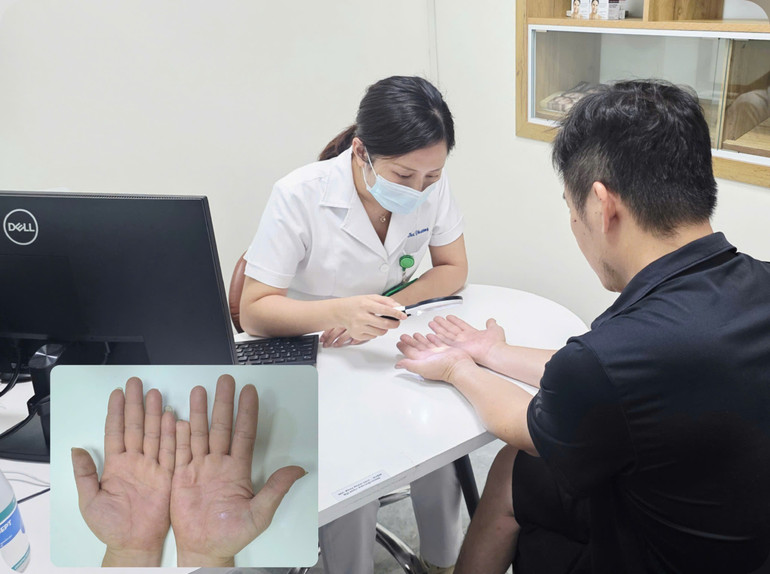
The main cause is that the patient has to contact with dirty water for a long time. When the skin is soaked in water for a long time, the pH changes, the skin's protective barrier is broken, allowing bacteria, fungi, and parasites to easily penetrate. In addition, mud, chemicals, or detergents can also cause irritant contact dermatitis.
When the skin's natural protective layer is weakened, even a small scratch is an "open door" for microorganisms to invade, causing inflammation, pustules, and even widespread infection.
Dr. Manh warned that if people arbitrarily apply medication or delay going to the hospital, the inflammation can spread, causing deep infection, cellulitis or combined fungal and bacterial infections. For people with underlying diseases such as diabetes or immunodeficiency, the risk of complications is even higher, which can lead to necrosis or sepsis.
Doctors at the Department of Dermatology and Burns recommend people to prevent skin diseases during the rainy season: Minimize wading in dirty water. If you have to go through flooded areas, wear rubber boots or waterproof gloves.
Wash hands and feet immediately after contact with water, preferably with antibacterial soap. Dry wet skin thoroughly, especially between the toes and hands; avoid leaving skin wet for long periods. Moisturize gently after cleansing to help restore the skin barrier.
If there are signs of itching, redness, blisters or burning pain, do not use medication on your own but go to a medical facility specializing in dermatology.
Keep the living environment clean, avoid leaving trash and stagnant water around the house, where disease-causing microorganisms can easily arise.
The rainy season not only brings the risk of flooding, but also many dangerous skin diseases. Proactively protecting and properly caring for the skin is the key to helping people prevent infections and maintain health during the rainy season.
Source: https://nhandan.vn/ngua-rat-ngoai-da-can-trong-voi-benh-nhiem-trung-do-mua-lu-post914076.html



![[Photo] Prime Minister Pham Minh Chinh chairs the Conference to deploy the National Target Program on Drug Prevention and Control until 2030](https://vphoto.vietnam.vn/thumb/1200x675/vietnam/resource/IMAGE/2025/10/09/1759990393779_dsc-0495-jpg.webp)
![[Photo] Prime Minister Pham Minh Chinh chairs a meeting of the Government Standing Committee on overcoming the consequences of natural disasters after storm No. 11](https://vphoto.vietnam.vn/thumb/1200x675/vietnam/resource/IMAGE/2025/10/09/1759997894015_dsc-0591-jpg.webp)






















































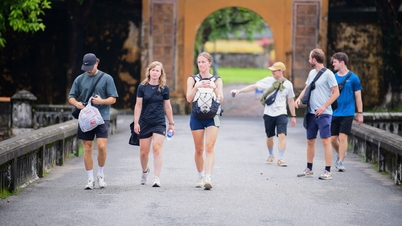



















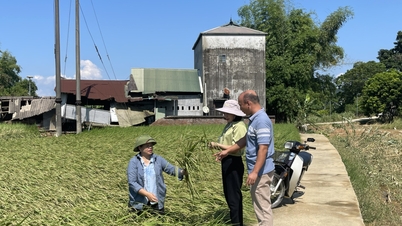













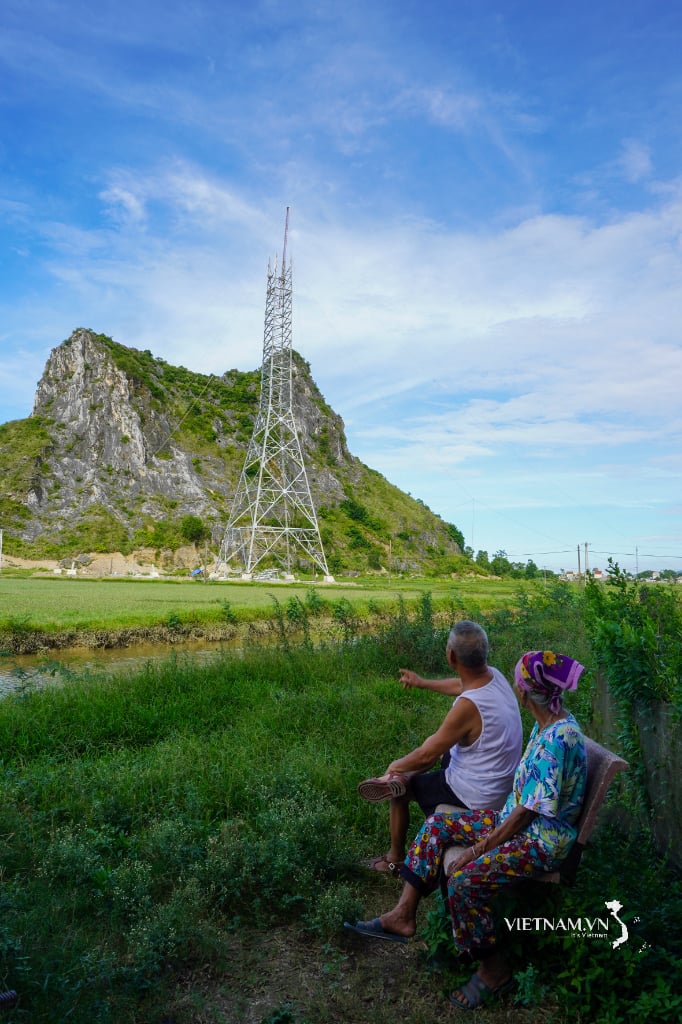



Comment (0)